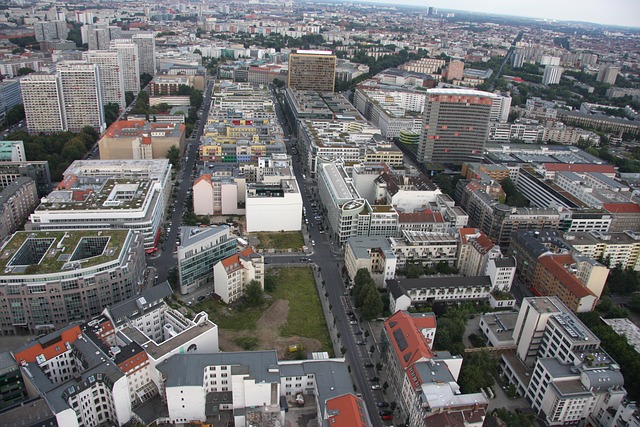Optimizing Social Media Events: A Guide for Local Business Community Engagement
Effective event planning for local businesses on social media is essential to create engaging and su…….

Effective event planning for local businesses on social media is essential to create engaging and successful online events that resonate with a local audience. A tailored approach using regional trends and unique community aspects ensures strong connections and relevance with the audience. Strategies such as influencer partnerships, targeted hashtags, interactive features like live Q&A's or virtual tours, and encouragement of user-generated content can significantly boost visibility and engagement. These techniques, when combined with real-time feedback and a focus on maintaining a sense of community belonging, allow local businesses to leverage the broad reach of social media while keeping events community-focused.
Preparation for these events involves aligning the event's purpose with the business's brand identity and goals, targeting the right demographic, and utilizing preferred social media platforms for interaction. A dynamic content strategy, clear objectives, and a detailed timeline are necessary, along with high-quality streaming and interactive elements during the event to facilitate live engagement. Utilizing social media's event pages, RSVP functions, and unique hashtags helps boost visibility and participation. Post-event, data analysis is critical for measuring success and informing future event planning efforts, emphasizing the importance of leveraging insights from social media interactions for continuous improvement in local business event marketing on social media platforms. This data-driven approach not only enhances online interaction but also provides valuable insights for future events, ensuring a dynamic and relevant social media presence that sustains engagement over time.
Navigating the digital landscape, local businesses increasingly turn to social media events as a cornerstone of their marketing strategy. This article delves into the nuances of effectively planning and executing these online gatherings, ensuring they resonate with target audiences. From devising robust strategies that engage communities to analyzing post-event feedback for continuous improvement, “Social Media Events Skillfully Managed” provides a comprehensive guide to event planning for local businesses. It dissects the elements that culminate in a successful social media event, from initial concept through to flawless execution. Learn to harness analytics and audience interaction to elevate your local business’s online presence and leave a lasting impact on your digital footprint.
- Mastering Social Media Event Planning: Strategies for Engaging Local Business Communities
- The Anatomy of Successful Social Media Events: From Concept to Execution
- Leveraging Analytics and Feedback: Elevating Post-Event Engagement for Local Businesses
Mastering Social Media Event Planning: Strategies for Engaging Local Business Communities

Crafting a successful social media event for local businesses involves a strategic blend of understanding your audience, leveraging local trends, and utilizing platform-specific features to maximize engagement. To effectively engage with the community through social media events, it’s crucial to create content that resonates with local consumers. This includes tailoring the event’s theme, activities, and promotional materials to reflect the unique characteristics of the local business landscape. By doing so, businesses can foster a sense of belonging and relevance among their target audience.
Engaging local business communities on social media hinges on meticulous event planning for local businesses. Strategies such as cross-promotion with local influencers, utilizing targeted hashtags, and offering interactive elements like live Q&A sessions or virtual tours can significantly enhance visibility and participation. Additionally, integrating user-generated content and encouraging real-time feedback during the event can create a dynamic and responsive atmosphere that keeps the audience invested. By implementing these strategies, local businesses can capitalize on social media’s expansive reach to draw in a wider audience while maintaining a focused, community-centric approach.
The Anatomy of Successful Social Media Events: From Concept to Execution

Crafting a successful social media event for local businesses involves a strategic blend of creativity, organization, and engagement. The journey begins with the conceptualization phase where the event’s purpose aligns with the brand’s identity and objectives. Local businesses must identify their target audience and determine the platforms most frequented by these individuals or entities. The chosen social media channels should facilitate interactive experiences that resonate with participants’ interests and needs.
Effective event planning for local businesses hinges on meticulous preparation, including setting clear goals, a detailed timeline, and a comprehensive content strategy. The execution of the event demands a robust digital infrastructure to support live interactions, such as high-quality streaming capabilities, interactive polls, and real-time Q&A features. Additionally, leveraging social media tools like event pages, RSVP functions, and event-specific hashtags can amplify visibility and participation. Throughout the event, local businesses should monitor engagement closely, ready to adapt their strategies in real time to maintain momentum and ensure a seamless experience for attendees. Post-event, analyzing performance metrics helps refine future social media events and underscores the importance of data-driven decision-making in event planning for local businesses.
Leveraging Analytics and Feedback: Elevating Post-Event Engagement for Local Businesses

In the realm of local business event planning, leveraging analytics and feedback post-event is a pivotal strategy to enhance engagement and cement customer relationships. By meticulously analyzing data collected from social media platforms, businesses can gain insights into audience preferences, peak interaction times, and content performance. This data-driven approach enables tailored content creation that resonates with the local community, fostering a more interactive and engaging online environment. Moreover, the feedback gathered from event participants provides actionable intelligence on what worked well and what could be improved, allowing for refined planning of future events. This iterative process not only elevates post-event engagement but also contributes to building a loyal customer base that actively participates in the brand’s social media journey.
Furthermore, integrating advanced analytics tools into the event planning framework for local businesses empowers decision-making with real-time data. These insights are instrumental in optimizing the timing and nature of posts, ensuring they align with the audience’s activity patterns. By continuously monitoring engagement metrics, businesses can adapt their strategies to maximize the impact of their social media presence. This responsive approach to event planning for local businesses is key to maintaining a dynamic and relevant online presence that keeps the audience coming back for more, thereby sustaining and amplifying post-event engagement in the long term.
Effective event planning for local businesses on social media hinges on a strategic blend of creativity, execution, and post-event engagement. This article has delved into the critical components that underpin successful social media events, from initial concept to seamless execution, and beyond. By implementing the outlined strategies, local businesses can significantly enhance their visibility and community involvement through well-managed digital events. Leveraging analytics and feedback post-event not only refines future endeavors but also fosters lasting connections with audiences. As the digital landscape continues to evolve, mastering these elements becomes increasingly crucial for any business aiming to make a mark in the online world.






